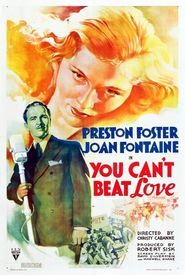Olga Moore, a remarkably gifted and multifaceted individual, made her grand entrance into the world on January 1, 1900, in the charming and captivating city of Buffalo, Wyoming, USA, a picturesque locale that would undoubtedly exert a profound and lasting influence on her formative years and subsequent growth, shaping her into the remarkable person she would eventually become.
Olga Moore, a dynamic and multifaceted creative presence, left an indelible mark on the realm of entertainment, bequeathing a lasting and far-reaching legacy that continues to captivate and enchant audiences across generations, her influence extending far beyond the confines of time and space, a testament to the enduring power of her artistry and innovative spirit.
The esteemed career of this renowned actress stretches across numerous decades, during which she has consistently produced a diverse array of iconic films that have left an indelible mark on the world of cinema. Among the many standout examples of her remarkable body of work is the 1937 cinematic masterpiece "You Can't Beat Love", a timeless classic that has stood the test of time and continues to captivate audiences to this very day.
Gloria Grahame, born June 28, 1923, in Los Angeles, California, began her acting career at a very young age, making her professional debut on stage in 1939. She quickly gained recognition for her remarkable talent, earning a contract with Metro-Goldwyn-Mayer (MGM) in 1944.
Grahame's early success was largely due to her work in film noir, a genre that would become synonymous with her name. Her portrayal of Vicki Lester in the 1952 classic "The Bad and the Beautiful" earned her an Academy Award for Best Supporting Actress, cementing her status as a Hollywood star.
Throughout her career, Grahame worked alongside some of the most renowned directors and actors of her time, including Billy Wilder, Fritz Lang, and Humphrey Bogart. Her versatility as an actress allowed her to take on a wide range of roles, from dramatic leads to comedic supporting characters.
Despite her many accomplishments, Grahame's personal life was marked by turmoil and tragedy. Her marriage to director Nicholas Ray ended in divorce, and she struggled with addiction and personal demons. Despite these challenges, she continued to work in the industry, appearing in a number of films and television shows throughout the 1970s and 1980s.
Gloria Grahame passed away on October 5, 1981, at the age of 57, leaving behind a legacy as one of the most talented and enduring actresses of her generation. Her impact on the world of cinema continues to be felt to this day, and her iconic performances remain a testament to her remarkable talent and enduring legacy.
Marjorie Lawrence's captivating performance in the 1941 cinematic masterpiece "Racing Luck" serves as a testament to her versatility as an actress, showcasing her remarkable aptitude for assuming a diverse array of characters with remarkable ease and finesse.
Beyond her notable contributions to the realm of cinema, Moore's impressive portfolio extended to the world of television, with her 1949 production of "Colgate Theatre" serving as a striking exemplar of her remarkable versatility and capacity to seamlessly transition between various mediums, thereby solidifying her reputation as a masterful performer capable of effortlessly navigating the nuances of both film and television.
Olga Moore's remarkable trajectory in the entertainment industry has been marked by a singular capacity to mesmerize and motivate crowds, thereby establishing herself as a luminary of unparalleled distinction and staying power.
Olga Moore's remarkable life, replete with an array of extraordinary accomplishments, was distinguished by a profound and abiding affection for her husband, Carl Franklin Arnold, with whom she shared a lifelong bond that defied the constraints of time and circumstance, fostering a deep and lasting connection that remained unwavering despite the passage of years and the vicissitudes of life.
Carl Franklin Arnold, a man of great character and intellect, was the object of Olga's enduring devotion, and their marriage was a testament to the transformative power of love and commitment. Together, they navigated the complexities of life, their bond growing stronger with each passing day, as they faced the challenges and triumphs that came their way.
Throughout her life, Olga's love for Carl remained a constant source of inspiration and strength, a beacon that guided her through the darkest of times and illuminated the path forward, even in the most uncertain of circumstances. And as she looked back on the many years they had shared, she was filled with a sense of gratitude and awe, knowing that her love for Carl had been a source of joy, comfort, and solace, a reminder that true love can transcend even the most daunting of obstacles.
Olga Moore's life on earth came to a sorrowful conclusion on January 9, 1981, in the nation's capital, Washington, District of Columbia, USA, a place that presented a striking contrast to her humble beginnings in the rural town of Buffalo, Wyoming.

















